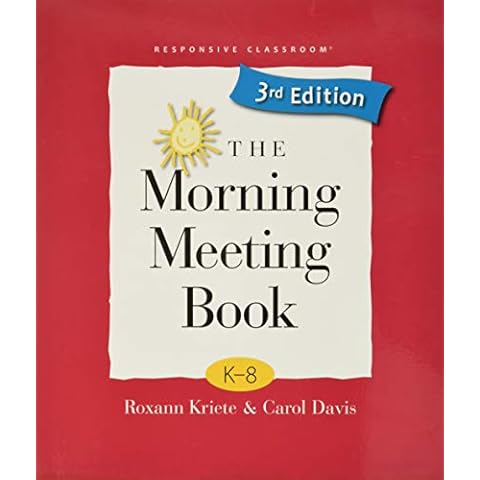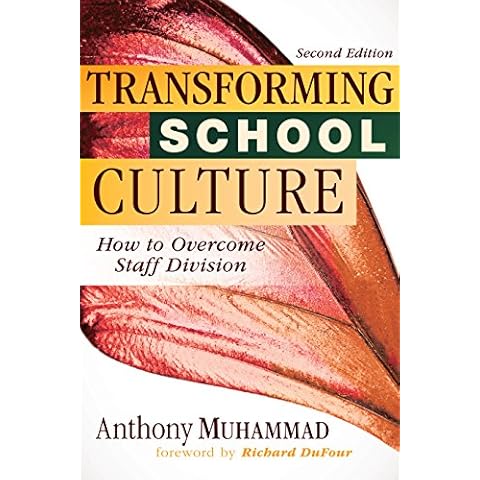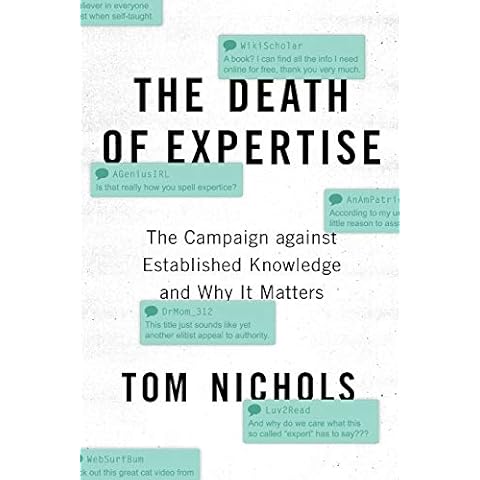Best Educational Philosophy Books of 2025
* We independently evaluate all recommended products and services. If you click on links we provide, we may receive compensation.
Educational philosophy books offer readers a deep dive into the theories and principles that shape our education system. From authors like John Dewey and Paulo Freire, these books explore topics such as the role of the teacher, student-centered learning, and the importance of critical thinking. These books are essential for educators and students alike, providing a foundation for understanding the history and evolution of education. Whether you're an aspiring teacher, a seasoned educator, or simply interested in the philosophy of education, these books are a valuable addition to any bookshelf.
At a Glance: Our Top Picks
Top 10 Educational Philosophy Books
Pedagogy of the Oppressed: 50th Anniversary Edition
Pedagogy of the Oppressed by Paulo Freire is a seminal work that has been empowering people worldwide for over five decades. The 50th Anniversary Edition includes an updated introduction by Donaldo Macedo, a new afterword by Ira Shor, and interviews with prominent educators and thinkers. The book's relevance is particularly significant in the US and Western Europe, where the underprivileged and minorities continue to struggle. This book is a must-read for educators, students, and anyone interested in social justice and critical consciousness. The unique perspectives presented in this edition make it a valuable addition to any library.
How to Differentiate Instruction in Academically Diverse Classrooms
This book, How to Differentiate Instruction in Academically Diverse Classrooms, written by Carol Ann Tomlinson, is a practical guide for teachers who want to provide high-quality curriculum and meaningful learning experiences for all students. This expanded 3rd edition covers the fundamentals of differentiation, including how to set up a flexible and supportive learning environment, manage a differentiated classroom, and plan lessons differentiated by readiness, interest, and learning profile. The author also provides strategies for differentiating content, process, and products. This book is an essential resource for teachers who want to honor the reality of their diverse students.
Yardsticks: Child and Adolescent Development Ages 4 - 14
Yardsticks: Child and Adolescent Development Ages 4 - 14 is a valuable resource for parents and educators who want to understand and celebrate the incredible journey of child development from ages four through fourteen. The book provides easy-to-access information about the cognitive, social-emotional, and physical characteristics unique to each age, along with practical advice on how to apply this knowledge. The fourth edition includes updated design, revised introductory material, and new age-by-age narratives that highlight what's intriguing, delightful, and sometimes challenging about children. Chip Wood's deep knowledge of general developmental trends makes this book a must-have resource for anyone committed to helping children learn and thrive.
Culturally and Linguistically Responsive Teaching and Learning - Classroom Practices for Student Success, Grades K-12 (2nd Edition)
Culturally and Linguistically Responsive Teaching and Learning is an audio guide that provides teachers with a pedagogical framework for implementing culturally and linguistically responsive strategies in diverse classrooms. Narrated by Dr. Sharroky Hollie, this resource is an ideal tool for novice and experienced educators looking to stay up-to-date with current research, best practices, and evidence-based teaching strategies. The guide addresses culture and language in five key areas: classroom management, academic literacy, academic vocabulary, academic language, and learning environment, and includes PDF resources of the appendices from the print version. Overall, this book is a valuable resource for anyone looking to create an inclusive and supportive learning environment for all students.
Belonging: The Science of Creating Connection and Bridging Divides
Belonging: The Science of Creating Connection and Bridging Divides by Geoffrey L. Cohen is a groundbreaking book that explores the importance of connection and belonging in our daily lives. Cohen uses science-backed techniques to offer concrete solutions for improving communal existence at work, in school, in our homes, and in our communities. The book addresses the issue of polarization and division in our society, offering ways to create empathy and forge lasting connections even across divides. This book is a must-read for anyone interested in improving their social ties and creating a more inclusive world.
Culture: The Story of Us, From Cave Art to K-Pop
Culture: The Story of Us, From Cave Art to K-Pop by Martin Puchner is a fascinating and engaging volume that takes readers on a global tour of the arts and humanities throughout history. Puchner explores the crucial passing down of knowledge and the integration of insights from the past and other cultures. From lost cities to ancient theaters, Puchner tells the gripping story of human achievement through our collective losses and rediscoveries, power plays and heroic journeys, innovations, imitations, and appropriations. This book is an archive of humanity's most monumental junctures and a guidebook for the future of us humans as a creative species. Highly recommended for those interested in the humanities and the history of human civilization.
The Morning Meeting Book
The Morning Meeting Book is a user-friendly guide that provides practical guidelines for holding responsive classroom morning meetings in K-8 classrooms. It includes descriptions of morning meetings in action, 100 ideas for greetings, sharing, activities, and messages, and guidance on adapting meeting components for different ages and abilities. The book also explains how morning meetings support mastery of common core state standards, 21st-century skills, and core competencies. Written by experienced educators Roxann Kriete and Carol Davis, this book is an essential resource for teachers who want to promote a positive classroom climate and academic growth.
Transforming School Culture: How to Overcome Staff Division (Leading the Four Types of Teachers and Creating a Positive School Culture)
This book, titled "Transforming School Culture: How to Overcome Staff Division (Leading the Four Types of Teachers and Creating a Positive School Culture)", written by Dr. Anthony Muhammad, offers an insightful school improvement plan for leaders to transform toxic school cultures into healthy ones. The author explores the underlying conflict among the four different types of teachers in a school and provides guidance on how school leaders can work with each group to create a positive school culture. The book also includes the author's latest research and a new chapter dedicated to answering frequently asked questions on culture and school leadership in education. Overall, this book is a valuable resource for anyone looking to create a positive school culture.
The Death of Expertise: The Campaign against Established Knowledge and Why it Matters
The Death of Expertise by Tom Nichols explores how the rise of technology and increased access to information has led to a rejection of experts and established knowledge. Nichols argues that this rejection has resulted in an ill-informed and angry citizenry that threatens the stability of democracy. The paperback edition includes a new foreword that addresses the exacerbation of these trends in the aftermath of Donald Trump's election. This book is an important warning about the dangers of populist and technocratic tendencies in our society.
Teaching Community: A Pedagogy of Hope
Teaching Community: A Pedagogy of Hope by bell hooks is a thought-provoking book that combines critical thinking about education with autobiographical narratives. The author invites readers to extend the discourse of race, gender, class, and nationality beyond the classroom into everyday situations of learning. Teaching Community seeks to theorize from a positive place, looking at what works. The book discusses many issues, including spirituality in the classroom, white people looking to end racism, and erotic relationships between professors and students. Overall, Teaching Community is an insightful and inspiring read that encourages readers to think about how they can choose to end racism and create a beloved community.

Frequently Asked Questions (FAQs)
1. What are the 5 major philosophy of education?
There are five philosophies of education that focus on teachers and students; essentialism, perennialism, progressivism, social reconstructionism, and existentialism.
2. What are the 7 philosophy in education?
These include Essentialism, Perennialism, Progressivism, Social Reconstructionism, Existentialism, Behaviorism, Constructivism, Conservatism, and Humanism.
3. What are the 3 major philosophy of education?
They are Perennialism, Essentialism, Progressivism, and Reconstructionism. These educational philosophies focus heavily on WHAT we should teach, the curriculum aspect.
4. What are the 4 educational philosophies?
These educational philosophical approaches are currently used in classrooms the world over. They are Perennialism, Essentialism, Progressivism, and Reconstructionism. These educational philosophies focus heavily on WHAT we should teach the curriculum aspect.
During our educational philosophy book research, we found 1,200+ educational philosophy book products and shortlisted 10 quality products. We collected and analyzed 18,506 customer reviews through our big data system to write the educational philosophy books list. We found that most customers choose educational philosophy books with an average price of $18.79.
Wilson Cook is a talented writer who has an MFA in creative writing from Williams College and has published more than 50 books acquired by hundreds of thousands of people from various countries by now. He is an inveterate reading lover as he has read a vast amount of books since childhood.










